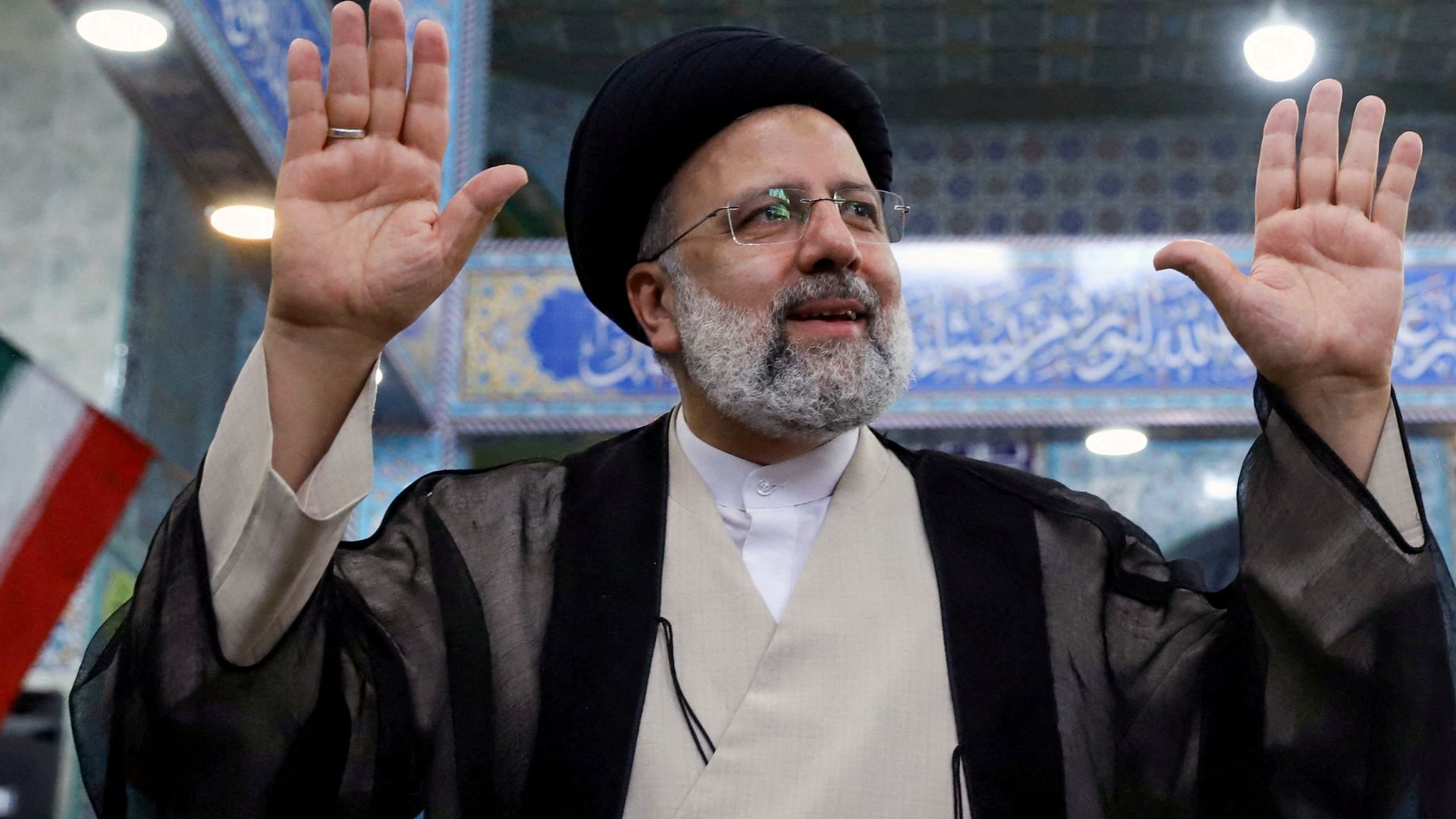
HOW MUCH WILL THE DEATH OF IRANIAN PRESIDENT EBRAHIM RAISI IMPACT THE COUNTRY’S, AND THE REGION’S, POLITICAL AND MILITARISTIC PICTURE?
DEPENDS ON WHO YOU ASK. I TALKED TO A COUPLE OF EXPERTS ON THE REGION. PROFESSOR ALON BEN-MEIR WHO IS NOW A SENIOR FELLOW AT THE WORLD POLICY INSTITUTE. AND J. MICHAEL WALLER, A SENIOR ANALYST FOR STRATEGY AT THE CENTER FOR SECURITY POLICY.
IN ORDER TO UNDERSTAND WHAT RAISI’S DEATH MEANS, IT’S FIRST IMPORTANT TO UNDERSTAND HIS ROLE AS PRESIDENT. HE DIDN’T LEAD IRAN. THE SUPREME AYATOLLAH DOES.
Alon Ben-Meir: He does not make that kind of strategic decision as to what to do, who to attack, or to make a deal with in terms of supplies, weapons, etc. That comes from Khamenei. He is the one who has to execute the orders he is receiving from Ayatollah Khomeini. This is not just with him, but with any president before him as well. So, that is the way it works in Iran, and I think it’s going to keep working that way in the future.
AND SINCE RAISI WASN’T REALLY RUNNING THE COUNTRY, BEN-MEIR SAYS IT WILL KEEP RUNNING MOSTLY THE SAME WAY. BOTH INTERNALLY AND EXTERNALLY.
Ben-Meir: That’s not going to change. Iran’s support of its proxies, it’s so called ‘Axis of Resistance,’ be that the Houthis, be that Hezbollah, Hamas will continue.
WHILE RAISI DIDN’T GET THE FINAL CALL ON MOST MAJOR DECISIONS, HE MADE ENOUGH CALLS TO CREATE QUITE THE REPUTATION INSIDE IRAN. HE WAS CALLED THE BUTCHER OF TEHRAN FOR HIS WIDE USE OF PUBLIC HANGINGS TO DISCOURAGE DISSENT AGAINST THE REGIME.
J. Michael Waller: And it’s not like here in the old west, where you’d be standing on a platform, and you’d drop, and it would break your neck and kill you almost instantly. The Iranian regime’s form of hanging is to put a noose around your neck and then lift you up slowly by a crane for a really long and really painful death and do it in a very public way. Even doing it at traffic circles, so everybody driving by would see. So he’s a real…was a really feared and hated figure inside Iran. So, there aren’t a lot of tears being shed for him.
WHILE MANY INSIDE IRAN MAY BE CELEBRATING RAISI’S DEATH, HIS PASSING OUTSIDE OF THE COUNTRY IS, TO THE DISMAY OF MANY, BEING HONORED AS IF EBRAHIM RAISI WAS A RENOWNED WORLD LEADER, AND NOT THE MAN RESPONSIBLE FOR THE DEATH OF THOUSANDS OF PEOPLE.
Waller: It’s really pathetic. You’ve got, you know, from the European Union, to NATO, to the State Department, even our ambassador at the United Nations Security Council stood up with everybody else in homage to Raisi, after word of his death. So, there are ways to be diplomatic about it, we don’t have to be obnoxious, we don’t have to be celebrating it. But we don’t have to be standing up and celebrating a moment of silence at the UN and issuing condolences from the State Department.
AS FAR AS HOW IRAN’S GOVERNMENT WILL MOVE ON FROM RAISI, ONE OF THE COUNTRY’S VICE PRESIDENTS WAS NAMED ACTING PRESIDENT AND NEW ELECTIONS ARE BEING PLANNED. BUT, LIKE I SAID EARLIER, THE REAL PATH TO POWER IN IRAN IS THE ONE THAT LEADS TO SUCCEEDING AYATOLLAH KHAMENEI. RAISI WAS ON THE SHORT LIST OF NAMES TO DO THAT. THE LIST IS NOW DOWN TO JUST ONE NAME, THE SUPREME LEADER’S SON, MOJTABA.
Ben-Meir: And apparently, he’s been groomed to be to be a successor at one point or another. Obviously, Raisi was sort of the front line as far as Khamenei was concerned, Ayatollah Khameni was concerned. So, I think the chances are that when Ayatollah Khomeini dies, when he dies, when he passes away, that his son may very well take over.
IF THAT HAPPENS, IF MOJTABA BECOMES THE NEXT SUPREME LEADER, THAT WILL CREATE TENSION WITHIN THE IRANIAN GOVERNMENT BECAUSE THE REGIME OVERTHREW A MONARCHY WHEN IT CAME TO POWER IN 1979, AND HAS BEEN POO-POOING THAT FORM OF GOVERNMENT EVER SINCE. THAT TENSION, INSTABILITY AND UNCERTAINTY COULD CREATE A CATALYST FOR CHANGE.
Waller: On the outside, you have the Crown Prince Reza Pahlavi, the son of the Shah who had been ousted decades earlier, who has a growing popular following inside Iran as a unifying figure, much like the British monarchy, meaning not a powerful king or monarch, but a representative one, to represent the country and to unify the whole country. So, Pahlavi is now for the first time ever, he’s been very active and very outspoken in saying that this is the time for the army to stand down any operations, and the police to stand down any operations to harm the public. And even for the army to go after the Iranian Revolutionary Guard. So, now you have a legitimate Iranian leader in exile with significant popular support inside the country, who after many, many years of doing nothing, is actually calling for action. This is vital. So, I think you’re going to see a major succession crisis inside Iran.
FOR MORE ON THE DEATH OF EBRAHIM RAISI, BE SURE TO CHECK OUT OUR APP. FOR STRAIGHT ARROW NEWS, I’M RYAN ROBERTSON.







